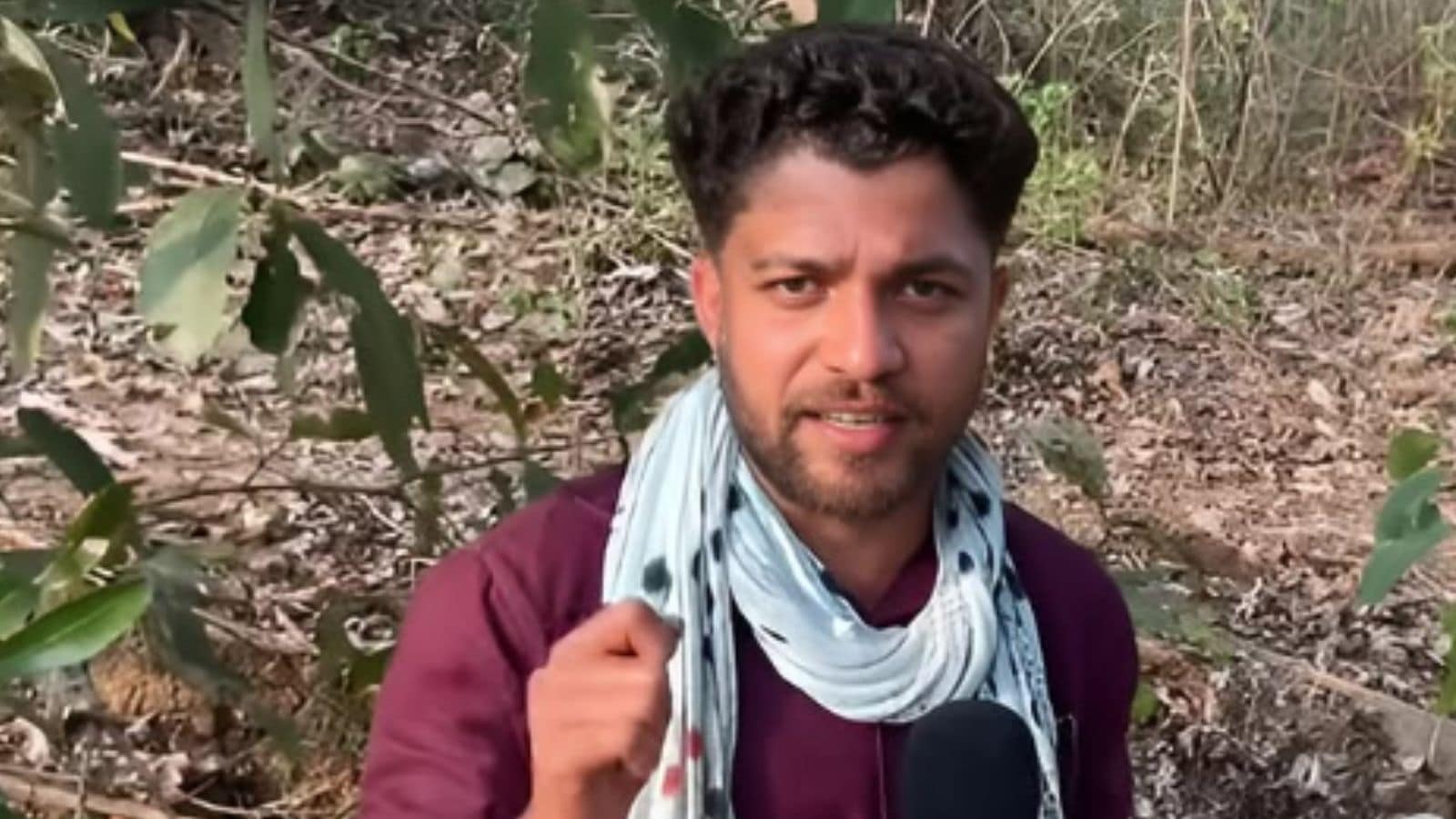 |
|
Mukesh Chandrakar's life was a testament to resilience and the power of perseverance, a narrative tragically cut short by alleged violence. His journey, from the harsh realities of poverty in conflict-ridden Chhattisgarh, India, to establishing a successful journalism career and a thriving YouTube channel, is a poignant tale of ambition and dedication. Born in Basaguda, a village deeply impacted by the violence of armed militias and Maoists, Mukesh faced immense challenges from a young age. His family, displaced by the conflict, sought refuge in a government shelter. Orphaned at a young age, he and his brother were raised by their mother, an anganwadi worker, until her death from cancer in 2013. To survive, Mukesh undertook various menial jobs, including selling mahua liquor and working as a bike mechanic, highlighting the desperate measures he took to support himself and his family. Despite these hardships, Mukesh's determination remained unwavering.
Inspired by his brother's work as a freelance journalist, Mukesh cultivated a passion for the profession. He dedicated himself to the craft, working tirelessly for several prominent news channels, including Sahara, Bansal, News18, and NDTV. His commitment to truthful reporting led him into the heart of Naxal-affected areas, where he bravely covered ground reports from encounter spots deep within the forests. Mukesh distinguished himself not only by his intrepid reporting but also by his unwavering support of fellow journalists. He acted as a guide and facilitator, often using his motorbike to transport other journalists to remote and dangerous locations. His dedication to his craft extended beyond his own career, illustrating a profound sense of community and mentorship within the journalism field. This selfless contribution underscores his profound commitment to journalistic integrity and his deep-seated empathy for those often unheard and marginalized.
Mukesh's dedication wasn't limited to fieldwork; he also leveraged the power of digital media to expand his reach. Recognizing the potential of online platforms, he launched his own YouTube channel, 'Bastar Junction,' which garnered a substantial following of 1.66 lakh subscribers. This venture not only provided him with financial stability but also served as a testament to his adaptability and entrepreneurial spirit. The financial success he experienced from his YouTube channel was a sharp contrast to his previous precarious financial situation, representing a well-deserved reward for his unrelenting hard work and dedication. This success, however, was short-lived. The income from his YouTube channel provided him the financial stability he had long sought, ultimately proving that his dedication and hard work could lead to a comfortable life.
Tragically, Mukesh's life was cut short in a manner directly related to his journalistic work. A report he filed with NDTV on December 25th, highlighting the deplorable condition of a road in Bijapur, triggered a chain of events that led to his untimely death. The contractor responsible for the road was Mukesh's cousin, Suresh Chandrakar. Enraged by the negative publicity generated by Mukesh's report, Suresh's brother, Ritesh, allegedly murdered Mukesh. Police investigations have confirmed that Suresh orchestrated the murder, demonstrating a blatant disregard for journalistic integrity and freedom of the press. Mukesh's death serves as a chilling reminder of the risks faced by journalists, especially those who dare to expose corruption and challenge powerful individuals or groups.
Mukesh Chandrakar's story is not just a tale of personal triumph and tragic loss; it is a powerful commentary on the state of journalism in conflict-ridden regions and the often-unseen sacrifices made by those who dedicate their lives to truth-telling. His legacy serves as a poignant reminder of the courage, perseverance, and dedication required to pursue truth in the face of adversity. Mukesh’s dedication and impact extended beyond merely reporting news; he helped to bridge communication gaps between communities, authorities and the media, offering a platform for the unheard voices of his community. He played a significant role in securing the release of a CoBRA jawan who had been held captive by Maoists in Tekalguda in 2021, showcasing his ability to navigate complex conflict situations, demonstrating exceptional courage and negotiation skills. This incident underlines his commitment to the larger security situation and his willingness to cooperate with authorities to secure positive outcomes.
The murder of Mukesh Chandrakar is a profound loss not only to his family and friends but also to the field of journalism and the communities he served. His work highlighted critical issues within his community, exposing corruption and advocating for positive change. He became a prominent voice, demanding accountability and pushing for improved infrastructure and services, particularly concerning Adivasi issues related to water, forest, and land rights ('jal, jungle aur zamin'). His efforts demonstrated a deep commitment to social justice, highlighting the urgent need for protection of journalists and ensuring that those who expose wrongdoing are not silenced through violence. His legacy should serve as an inspiration to uphold journalistic integrity and fight for freedom of the press, even in the face of immense personal risk. The demand for justice in his case underscores the need for a safe and conducive environment for journalists to operate freely and without fear of retribution. His story is a stark reminder of the sacrifices that are often made in pursuit of truth and the importance of protecting those who stand up for what is right.
